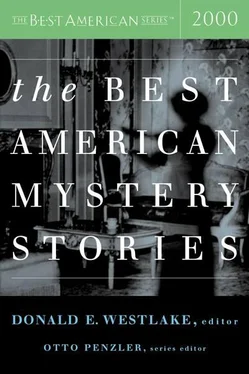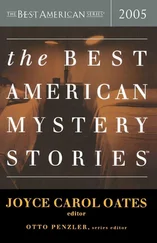A number of biting retorts rose, but I pushed them back and smiled thinly. “I’ll be gone by Friday.”
With pursed lips she nodded, sat down, and put her hands on the table. “I’ll have a large glass of that wine, please.”
So I poured her a glass from the two liter bottle she’d brought, which must have cost four or five dollars, sat down across from her, and raised my eyebrows. She ignored the inquiry, hefted Cat to the table, and ran her long, thin hands over Cat’s body. “I’m surprised. She looks pathetic but is fairly healthy. You’ve done well by her, Harry.”
“Perhaps, but the five hours you worked on her is what gave her a future.”
Annie smiled briefly and drank. She set the glass down and sighed.
“I visited Duncan yesterday. He also is doing surprisingly well. I thought prison would kill him, would reduce him to suicidal pathos. But he seems to be... well, if not thriving, certainly coping. The highly structured life behind bars obviously suits him — he was almost smiling.”
Duncan was going to spend a minimum of fifteen years in that prison, and Annie’s apparent case with that was disturbing, considering her initial reaction. So I just nodded and kept quiet.
She refilled her glass and studied me with those flat eyes as if I were an artifact someone had dug out of the south pasture. Then in a hoarse near whisper she said, “Harry, I’ve been doing a bit of thinking. Reasonable, unprejudiced thinking, and I’ve decided that, if you want to, you may stay. You’ve done well by The Farm and certainly by me, and to evict you over a difference in values is behavior that is repellent. So, if you want, you may unpack and remain here in the grove.”
Casually, and with a surprisingly steady hand considering the sudden increase in my heart rate, I raised my mug, drank deeply, and asked, “Where’s the string?”
She smiled, the genuine article this time. “No strings, Harry. Stay and do as you please. And if you aren’t interested in my little puzzle, that’s fine also.”
Aha. “Your little puzzle?”
“As I said, you’re free to stay. No restrictions. I would not endeavor to coerce you into anything you wouldn’t want to do.”
Unbidden, a smile crept across my face. “Your little puzzle?” I repeated.
She rummaged in her pants pocket, brought out a ring of keys, and dropped them on the table.
Rain started to hammer the boat, and a hard rumble rolled across the pasture and bowled through the grove. Cat struggled to her feet, teetered on the edge of the table, and with a sorrowful yowl dropped into my arms and laid her scarred head against my chest.
I picked up the key ring and fanned the keys across my palm. Four keys. Two were automotive, with Chrysler’s five-pointed star stamped on the end of each one. There was also a smallish key of tarnished brass and a large skeleton key with that characteristic notched piece of flat metal at the working end. I let the keys dangle in my hand, raised my eyebrows, and said, “The keys to the kingdom?”
Annie shook her head and muttered, “Unlikely. A few days ago I noticed that all my kitchenware was on the countertop or stuffed in the dishwasher and my kitchen drawers were filled with crap. It was obvious things had gotten a little out of hand and action was called for.”
She paused, took a healthy swig of wine, gave me a thin-lipped smile. “So I set myself to the task, and now my utensils are back in the drawers where they belong and about forty pounds of crap is residing in our illegal landfill.”
“A grand blow to the solar plexus of Entropy,” I murmured.
“Indeed. In the front of the last drawer, covered by seven hundred and eight pennies, was that key ring. I had forgotten about it. It was Bob’s; I found it in his coat pocket two days before he died. He had had two big strokes by then, and it was obvious he was dying. And it was equally obvious that we both wanted to get it the hell over with. At any rate, we were in the process of deciding what to do with things. What child should get what, what to do with The Farm, how badly to lie to the tax people, and all that.
“As I said, I found those keys in a coat of his, an old corduroy thing with a fur collar. He was wearing it the day he had his first stroke.” She paused, her eyes on the ceiling, then she mentally shook herself, looked at me, and forced a smile. “I showed him the key ring and asked him what the keys were for and what I should do with them. One of the last coherent things he said to me was, ‘My love, you hold the keys to your dream.’ ”
I picked the keys up and looked at them. “The keys to your dream. Did he explain?”
Annie shook her head. “He was drifting in and out, having good spells, bad spells, but usually not making much sense. Bob and I were married for forty-six and a half years, and he knew I didn’t have any dream or dreams worth mentioning. My idea of a dream was a trip to the theater or an art museum, and I rarely mentioned them ’cause I knew Bob had no interest in those things.”
I looked away and while pushing the keys around with my finger said, “But...”
“Yes, but. As I said, Harry, you’re under no requirement to poke around, but if you’re curious? Well, you are rather good at ferreting things out. Usually things people would rather keep hidden.” She pushed herself up with both hands, struggled into her official Gloucester rain gear, grabbed her staff, and glared at me.
I helped her up the steps, walked her across the rain-slashed deck and down the stairs. She gave me a gimlet smile and, like Diogenes off to search for that mythical honest man, stalked out of the grove.
I put another log in the woodstove, slouched on the settee, and watched the flickering shadows dance around the cabin. Like the ending of an eclipse, the darkness, the deep, dusky fear, slowly seeped out of my soul and allowed me to smile. The grove was mine again. I was, at least for now, spared the dingy hotel room, that fifteen by twenty cell with a sink and the ABSOLUTELY NO PETS sign on the door. I hugged Cat and whispered, “We’ve been pardoned.”
Cat, her claws hooked in my sweatshirt, yowled at the thunder and kept drooling on me.
I woke up early for the first time in days. Hands behind my head, I stared at the ceiling and smiled. Cat, annoyed that the blanket had slipped down her body, lifted her small head off the pillow, put a paw on my arm, and went, “Yeow?”
As I usually did, I gave her a little physical therapy, gently massaging the jagged scars and atrophied muscle. Then we had a quick game of wrestle-the-hand, the first in weeks.
Later, sipping coffee, I watched the squirrels try to get into the birdfeeders. While watching the struggle outside the window I toyed with the key ring I’d left on the table last night. “The keys to your dream?” I muttered. With Cat stretched out and purring in the sling across my chest, I marched through wet, dead hay across the pasture to the barn.
With Annie’s connected house, the barn is almost a hundred yards of sagging, much-patched lumber that looms three stories over one’s head. The years of renovation into rooms and tiny apartments have turned the interior into a dark maze that only the residents can negotiate without a guide. More than once newcomers have been found sobbing in a narrow dark hallway, lost and wondering what brought them to this groaning, creaking, windblown dump out in the middle of nowhere.
The front half of the second floor of the barn is a multipurpose room. It’s a kitchen and dining hall, and the back part of the room is dotted with islands of cast-off furniture. That’s the place to linger if your desire is to listen to an unlikely version of who’s doing what to whom and why.
I was a little late, but breakfast was still being served and I walked the serving line, gathering eggs, toast, and coffee. As I stood at the end of the line scanning the tables, Mildred Beede, a seamed, white-haired existentialist and sometime drinking acquaintance, gripped my shoulder.
Читать дальше












